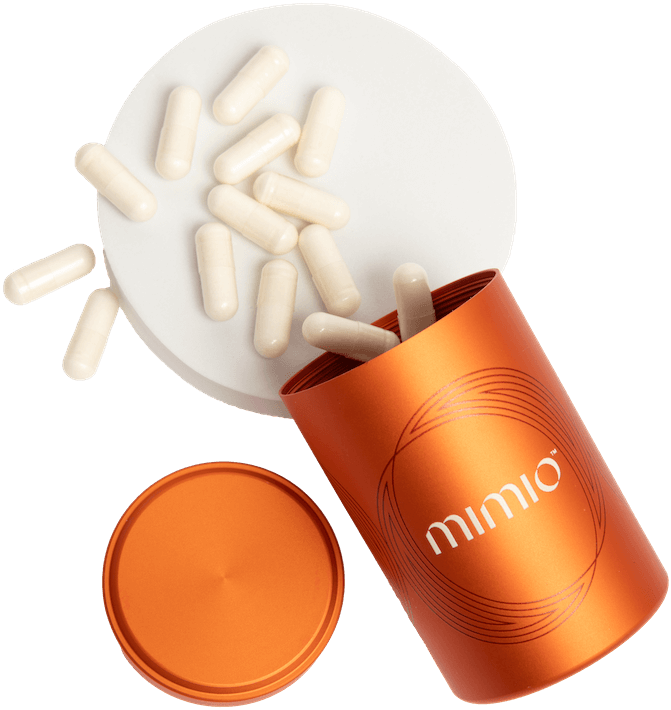If you're lying awake staring at the ceiling and wondering why sleep is so elusive, you're not alone. Poor sleep habits can sneak at any time, leaving us groggy, irritable, and unable to perform at our peak. But the good news? With a few tweaks, you can dramatically improve your sleep quality and, as a result, your overall well-being. So, if you're ready to kick those bad sleep habits to the curb, let’s dive into some strategies that could have you snoozing like a pro in no time.
1. Set a Consistent Sleep Schedule
Your body craves routine—even if your mind resists. Having a consistent sleep and wake-up schedule helps regulate your body's internal clock, known as circadian rhythm. Aim to go to bed and wake up at the same time every day (yes, even on weekends—sorry!). A consistent schedule signals to your brain when it’s time to wind down and when to rise and shine, making it easier to fall asleep and wake up naturally.
- Tip: Set a bedtime reminder on your phone about 30 minutes before you plan to sleep. This can help you start winding down and avoid the temptation of late-night Netflix binges. Trust us, the show will still be there tomorrow.
2. Create a Relaxing Pre-Sleep Routine
Think of your pre-sleep routine as the warm-up before the big game. It’s a way to signal to your body and mind that it’s time to shift gears into relaxation mode. Activities like reading, taking a warm bath, or practicing deep breathing exercises can all help you unwind.
- Tip: Avoid stimulating activities like intense exercise, work emails, or scrolling through social media right before bed. Those can spike your adrenaline and cortisol, keeping you wired when you should be winding down.
3. Optimize Your Sleep Environment
Your bedroom should be a sanctuary dedicated to sleep. Creating the right sleep environment is key to helping you fall asleep faster and stay asleep longer. Keep your room cool, quiet, and dark, and invest in a comfortable mattress and pillows. It’s also worth mentioning that your bedroom should be screen-free—yes, that means no phones, tablets, or laptops.
- Tip: If noise is an issue, consider using a white noise machine or earplugs. And if you can’t block out light, a sleep mask could be your new best friend.
4. Watch What You Eat (And Drink!)
Ever heard the phrase "You are what you eat?" Well, your sleep habits are what you eat, too. Heavy, spicy, or rich foods close to bedtime can make it harder to drift off peacefully, while caffeine and nicotine can keep you awake longer than you'd like. Instead, opt for a light snack if you're feeling peckish before bed—something like a banana or a handful of almonds, which contain sleep-promoting nutrients like magnesium and tryptophan.
- Tip: Cut out caffeine by mid-afternoon to prevent it from interfering with your sleep. And though a nightcap might make you feel sleepy, alcohol can actually disrupt your sleep cycle, so stick to herbal teas or water instead.
5. Manage Your Stress Levels
Stress and sleep are like oil and water—they don’t mix well. When your mind is racing with worries, it’s hard to drift off into peaceful slumber. Developing stress management techniques like meditation, journaling, or gentle yoga can help calm your mind before bed.
- Tip: Practice mindfulness meditation. This involves focusing on your breathing and bringing your attention back to the present moment whenever your mind starts to wander. Apps like Calm or Headspace can guide you through a quick 5-minute meditation to ease your mind before sleep.
6. Get Moving—But Not Too Late
Regular physical activity can help you fall asleep faster and enjoy deeper sleep. Exercise helps reduce stress and tire out your body, both of which contribute to better sleep. Just be mindful of the timing—working out too close to bedtime can be stimulating and make it harder to fall asleep.
- Tip: Aim to finish your exercise routine at least 3-4 hours before bed. If evening exercise is your only option, stick to low-impact activities like yoga or stretching.
7. Limit Naps
While naps can be a great way to catch up on sleep in the short term, they can also throw off your sleep schedule if you're not careful. If you must nap, try to keep it short (20-30 minutes) and early in the afternoon.
- Tip: If you find yourself napping regularly during the day, it may be a sign that you're not getting enough quality sleep at night. In that case, it’s worth re-evaluating your nighttime sleep habits to see where you can make improvements.
8. Try Sleep-Supporting Supplements
Sometimes, no matter how many sleep strategies you try, you still need a little extra help. That’s where supplements can come in handy. Natural sleep aids like melatonin, magnesium, and valerian root have been shown to promote relaxation and better sleep. Another powerful option is Mimio Biomimetic Cell Care, which can support overall health, including better sleep, by mimicking the regenerative benefits of fasting.
- Tip: Not sure where to start with supplements? Mimio's scientifically-backed formula can be a great addition to your routine if you’re looking for a holistic approach to health, including improved sleep habits. Check out Mimio Biomimetic Cell Care to learn more.
9. Respect Your Body’s Natural Rhythms
Your body’s natural sleep-wake cycles—called circadian rhythms—are influenced by factors like light and temperature. By aligning your habits with these rhythms, you can improve your sleep quality. For instance, getting exposure to natural sunlight during the day and dimming the lights in the evening can help reinforce your body’s natural sleep-wake cycle.
- Tip: Try to get outside for at least 30 minutes a day. In the evening, dim the lights in your home about an hour before bed to signal to your body that it’s time to start winding down.
Assess Your Sleep Health: A New At-Home Test for Sleep Quality
Wondering just how well you're actually sleeping? It can be hard to measure the quality of your rest without a little help. That's where at-home sleep tests come into play. These handy tools can give you valuable insights into your sleep patterns and help you identify areas for improvement.
At-home sleep tests, such as wearable devices or sleep-tracking apps, are designed to monitor various sleep metrics like the number of times you wake up during the night, your sleep stages (light, deep, and REM), and even how long it takes you to fall asleep. By analyzing this data, you can get a clearer picture of your sleep health and make more informed decisions on how to optimize it.
- Tip: If you're curious about your sleep efficiency or suspect that you may have underlying issues like sleep apnea, consider using an at-home sleep tracker to collect data over a week or two. Then, bring the results to your healthcare provider for a deeper analysis and personalized advice.
And while sleep trackers can't replace professional medical evaluations, they can empower you to take control of your sleep health from the comfort of your own bed. It’s like having a personal sleep coach guiding you toward a more restful night—minus the gym membership and awkward motivational speeches.
It’s Time to Sleep Like a Pro
Improving your sleep habits doesn’t have to be complicated or overwhelming. By incorporating these simple tips—setting a consistent schedule, optimizing your environment, managing stress, and supporting your body with the right supplements—you can create a sleep routine that leaves you feeling rested, rejuvenated, and ready to tackle whatever the day throws your way.
Ready to take your sleep and overall health into your own hands? Start by assessing your sleep with a simple at-home test, making small, consistent changes to your routine, and letting your body’s natural rhythms do the rest. For an extra boost, pair your efforts with Mimio Biomimetic Cell Care, a scientifically-backed supplement that supports better rest and overall well-being. It's a holistic approach to improving your sleep and living your healthiest life.


